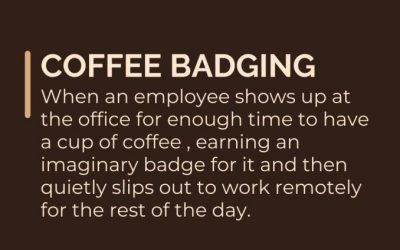A recent poll by Mercer found that only a minority of employers monitor practices for age discrimination. Dealing correctly with ageism in the workplace and particularly in the recruitment process is an important part of organisational diversity, so we look at some of the facts and offer a few suggestions to ensure ageism doesn’t become an issue for your organistion.
Remember it’s not only the older generation that ageism can effect
When we think of ageism at work or in recruitment, it’s often related to older workers, as this is the most reported and perhaps the most common, particularly in the world of technology. Many organisations may feel that recruiting a younger employee is best for their organisation as they are able to offer a lower salary, or because a younger person is less likely to have family commitments and be able to work longer hours, or because a younger person may be seen to have a better ‘cultural fit’ with their hip, fashionable business. The older generation has a lot to offer, and our article ‘Can Older Workers Bridge the Skills Shortage Gap?’ discusses this further.
However, the Guardian reported that “experiences of age discrimination were more common for younger groups, with under-25s at least twice as likely to have experienced it than other age groups” suggesting that employees over 40 had the highest status and “perceptions towards those aged over 70 were more positive than towards those in their 20s”. Respect, experience and maturity come with age, but the younger generation need a chance to develop these attributes so mustn’t be discriminated against either.
Keep pay and progression in mind
A report by XpertHR revealed that; “technology professionals get fewer promotions, lower performance ratings and reduced pay increases once they hit the age of 50.” They found that employees in their 20s got higher pay increases and more regular promotions, decreasing rapidly once they hit 30. The report (which excluded senior management) also revealed that performance rates were higher for those in their 30s, than for those in their 20s, and stayed steady for 40 and 50 years olds before beginning to tail off for those in their 60s. This flags up the issue of whether pay increases and promotion are generally being handed out based on performance or on age.
Incorporate anti-ageism into your overall company culture
Obvious ageism such as compulsory retirement ages or age caps are unacceptable and will end up in court if there are still organisations with these kind of old fashioned and unfair practices in place. However there are many grey areas, particularly in the writing of job adverts and descriptions. It seems that some organisations simply want to find a different way to describe the same thing, without using the latest word or phrase to be struck off the list of acceptable adjectives. For example, following a lawsuit against Facebook for posting a job advert with the phrase ‘class of 2007 or 2008 preferred’ and the since common use of the term ‘new graduate’ Fortune reported that some employers are opting to mask their age bias by advertising for a ‘digital native’. Surely just another way to say ‘young’? The more long-term view is to remove any age expectations from your position and organisation, and adopt a policy that thrives on a number of generations working together.
At Langley James we have a wealth of recruitment and personnel experience and can guide you through the best practice for advertising your job and finding the best candidate. We’ll do the hard work for you! If you’d like more information about diversity or avoiding ageism in your recruitment please get in touch.











